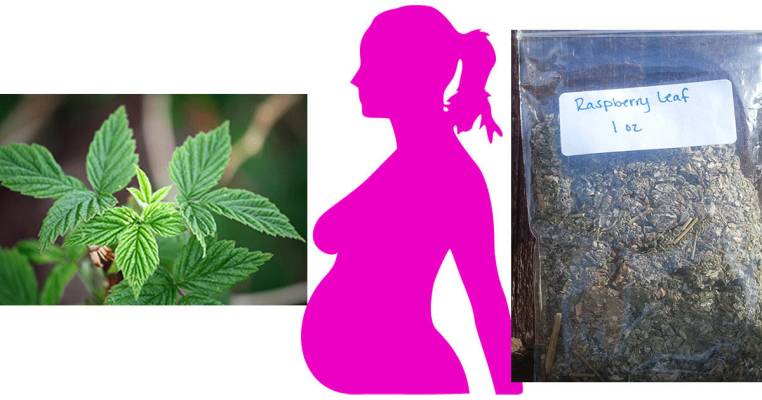 Raspberry leaf, especially in tea form, has long been used in traditional
herbal medicine and midwifery as an herbal tonic during pregnancy. Used in the correct way
it is both a safe and effective medicine
Raspberry leaf, especially in tea form, has long been used in traditional
herbal medicine and midwifery as an herbal tonic during pregnancy. Used in the correct way
it is both a safe and effective medicine
Anecdotal reports have suggested that uterine contractions may be more coordinated during labor after ingestion of raspberry leaf during the last three months of pregnancy(1,2)
The first recorded therapeutic use of red raspberry leaf ( Rubus idaeus L., ssp. idaeus, Rosaceae) extract dates back to 1597.
I generally recommend taking raspberry leaf tea in the 3rd trimester when women reach 32 weeks during their pregnancy to allow their bodies to assimilate the benefits before giving birth.
Like the use of any herbal medicine in pregnancy we are always cautious to ensure safety. Lets take a look at the scientific evidence from human trials to date.
Decreases the likelihood of pre- and post-term gestation, as well as reducing the chances of an artificial rupture and the need for a caesarean section
In 2001 in a double-blind, randomized, placebo-controlled clinical trial, the effect of raspberry leaf extract in tablets was studied on labor and birth outcomes(3). The trial included 192 low-risk nulliparous women(first child) taking the herb from 32 weeks gestation until commencement of labor. The dose was eqv. to 1.2g of the leaf twice daily or placebo and participants were assessed for various markers such as length of gestation, incidence of induction of labor, incidence of artificial rupture of membranes, use of patient-requested epidural block, length of stages of labor and mode of birth.
The results of this Australian study were modest but showed a slight decrease in the second stage of labor and additionally women taking raspberry leaf were slightly more likely to have vaginal births and less likely to require artificial rupture of membranes during labor or forceps to assist birth. This study certainly endorsed the safety of the herbs’ use (e.g does it facilitate preterm labor or birth? The most common concern with this medicine) showing no difference between it and placebo with reported adverse events, and all recorded adverse events were generally pregnancy related such as nausea, vomiting, diarrhea and constipation.
Length of the first stage of labor was shorter for women consuming raspberry leaf
Authors carried out a previous retrospective study in 1998, examing the safety of raspberry leaf tea in women and their babies when consumed during pregnancy(4) The researchers interviewed 109 postnatal women (day 1-4). Fifty-eight women had consumed raspberry leaf in some form (tea, tablet, tincture), at various dosages, and at various times (as early as 8 weeks gestation to as late as 39 weeks gestation) . A control group of 51 women who had not used raspberry leaf were used for comparison. Interestingly, the average length of the first stage of labor was shorter for women consuming raspberry leaf, while the second and third stages were similar in both groups. While these results are not statistically significant, there is a trend in favor of an effect, which may be important when considering pregnancy and labor.
Reduced postpartum uterine contractions in the days following birth
One study, published in 1941, found that uterine contractions diminished in frequency and strength in women given 20-40 g of raspberry leaf extract in the first few days following birth(5)
Safety
A lot of the safety concerns surrounding the use of raspberry leaf during pregnancy is whether it may bring on preterm labor. A lot of the concerns seem to be born out of in vitro studies (studies where they mix raspberry leaf extract with cells in a test tube in a lab) and mainly on cells from rats and cats and rabbits, then extrapolate the observations to its use in pregnant woman. All the studies done on actual humans show its use to be safe and a history of use in pregnant women for over 100 years tells a story too. As raspberry leaf is high in tannins, those women who are prone to anaemia (low iron) need to take this into account and consume a few hours away from meals and iron supplements
Conclusion
Raspberry leaf extract has a long history of use for pregnant women as an herbal medicine to help ease labor. It also has a traditional use as a galactagogue to aid the flow of breastmilk when nursing. Best of luck with your pregnancy and enjoy this special time
References:
1.Hoffmann D. The Herbal Handbook: A User's Guide to Medical Herbalism. Rochester (VT): Healing Arts Press;1998. p. 151.
2. Mabey R. The New Age Herbalist. New York (NY): Macmillan Publishing; 1988. p. 105.
5. Whitehouse B. Fragarine: an inhibitor of uterine action. BMJ 1941;13:370-1.




 Follow me on facebook
Follow me on facebook